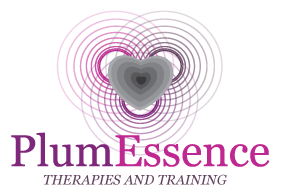This is the 10th in a series of blogs, using answers to pass Mental Health qualifications. This short blog is an introduction to Anxiety Awareness, with the topic expanded upon in future blogs.
Defining the term ‘anxiety’
Very briefly, anxiety can be described as the extreme fear of the future, of the unknown, worrying about the unknown and what could happen (as in, what could go wrong).
What is meant by a ‘panic attack’?
A panic attack can happen at almost any time. It can be a normal response to a threatening situation, where people could go into a flight or fight mode.
Panic attacks occur when there is a sudden physiological change/response to a situation, such as heart palpitations, feeling faint or dizzy or struggling to breathe.
The physical symptoms are a response to unhelpful thoughts, although often people do not recognize these as happening first.
Possible causes of anxiety:
Past experiences and traumatic events can cause a memory trigger, causing some form of distress, panic or anxiety attack. This can often be the case when some physical harm was caused to a person or they saw something that haunts them. These are often situations where the person felt out of control and potentially, helpless. Post-traumatic stress disorder (PTSD) is now recognised as the worst cause of these causes of anxiety.
Fears and phobias, usually unfounded such as fear of heights, flying, spiders etc. There is usually no valid reasons for these fears and phobias as often people have not experienced anything traumatic or distressful because of them. The person can have mild anxiety or severe to the point where is can affect their quality of life.
Ultimately, if could be considered the fear of the unknown and not being in control.
Recreational drugs, some side effects of medication and too much coffee, all can cause physiological changes to the body, such as increasing the heart rate and blood pressure. The body can respond in a way to try and counteract what is happening by the substance, which can cause it more distress. The physiological distress can then cause the mind to react to what the body is doing.
Anxiety itself is a result of a behaviour created by a physiological or emotional state of which we behave in an apprehensive way. The physical responses described can occur during a panic attack, or in a stressful situation. There are a range of possible causes, way too many to detail in this short blog.
Tracey of PlumEssence Therapies and Training is a qualified stress management consultant, mental health first aider, hypnotherapist and body work therapist focusing on helping reduce and alleviate concerns connected to both physical and emotional pain. Tracey is also a teacher and trainer, delivering workshops and accredited mental health courses.
Tracey is available for a no-obligation chat to see how we could work together on 01889 808388 or tracey@plumessencetherapies.co.uk

One thought on “Anxiety Awareness”